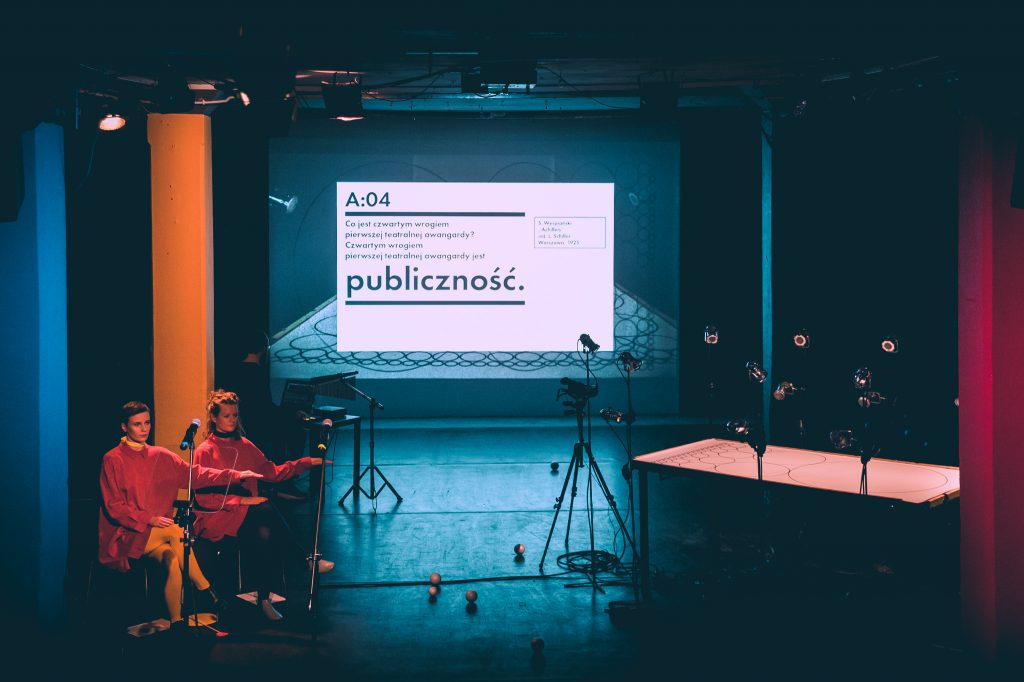Events
Grzegorz Laszuk
LIGHTSKarolina Gębska, Piotr Szczygielski
VIDEOAdrian Cognac
COOPERATIONMagda Mosiewicz
CHOREOGRAPHYWeronika Pelczyńska
SET DESIGNPiotr Szczygielski
COSTUMESEwelina Ciuchta
CAST(gościnnie) Halszka Sokołowska, Anna Wojnarowska
PREMIERE14 listopada 2017 r.
The performance was created in the framework of the “Reclaimed Avant-Garde” project by the Zbigniew Raszewski Theatre Institute.
Polish with English surtitles
A joint project between Komuna//Warszawa and the Theatre Institute is a return to the stage aesthetics and manifestos of the 1920s. It’s an elegy, but also a hymn to the avant-garde. In theatrical reconstructions of 20th century set designs and the demands of artists from those times, the creators are looking for an answer to the question: what was the avant-garde? Drawing a vision of a better world? An objection, or perhaps an escape from the rushing steamroller of history?
In “7 Songs of Avant-Garde” the Komuna//Warszawa artists perform a symbolic reconstruction of set design. The stage aesthetics characteristic of the days of avant-garde help evoke the ideas that it were crucial to that movement. It is also so in the context of political engagement, destroying the theatrical illusion and direct conversation between the creators and the audience.
Avant-garde manifestos are often defined as visions of a better world. But sometimes the same manifesto can be interpreted as an escape from blindly racing time. Regardless of which interpretation is correct, the avant-garde is always heading towards THE FUTURE.
The centennial of the avant-garde was held under the honorary patronage of the President of the Republic of Poland, Andrzej Duda. Perhaps it’s ironic, maybe a sign of the times and the final signal, that the concept of avant-garde should be placed among the archaeological exhibits of extinct cultures. Authorities usually fight with the avant-garde, because the avant-garde, in turn, usually fights against the authorities. So, has the avant-garde spirit finally died? – the creators wonder.
If theatre, or life at least in some way resembles a game of chess, then Laszuk is a bishop in the game. He moves and captures, crosses reality and art at an acute angle. With his moves he draws unobvious, broken paths, quick and abruptly changing. He clashes fixed clichés, beaten tracks. A bishop, or a flame.
teatralny.pl, Łukasz Drewniak
